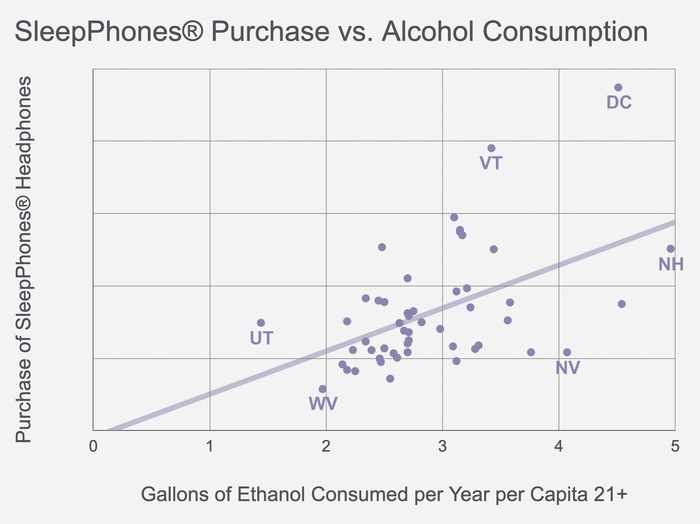Alcohol's Impact on Sleep: New Data Confirms It's Worse Than You Think

Does alcohol consumption help or hinder sleep?
Alcohol is a nervous system depressant, meaning that it reduces your alertness and slows awareness. Although alcohol can produce a wide range of effects, it makes most people feel sleepy. Some people even drink in order to fall asleep. Popular belief is that alcohol helps you sleep.
However, as most doctors will tell you, alcohol is actually bad for sleep.
While the alcohol is still in your body, your brain has less REM (Rapid Eye Movement) sleep, which is the portion of sleep for dreaming and memory. Without REM, your brain isn't getting the full restoration it needs. Alcohol is also a diuretic, so you may need to wake up for the bathroom more. Alcohol initially gives you a sense of warmth as it brings blood to the skin surface. However, your core body temperature decreases, making you feel cold as you sleep. As the effects of the depressant wears off, your brain's neurochemistry reverses course and overcorrects, preventing your brain from resetting the neurotransmitters needed for the next day. Science says that alcohol doesn't help you sleep.
We wanted to see if there was any relationship between alcohol consumption and purchase of a sleep aid - our SleepPhones® headphones.
Taking state by state data from the National Institute for Alcohol Abuse and Alcoholism, we looked at the amount of alcohol consumed versus the amount people spent per capita on SleepPhones.com. The NIAAA data offers 3 categories of alcohol: beer, wine, and spirits. West Virginia, South Dakota, and Pennsylvania favor beer. The District of Columbia, Virginia, and Vermont prefer wine. Delaware, Rhode Island, and Maryland enjoy spirits. Since hard liquor has more alcohol content compared with beer, the NIAAA provides the actual gallons of ethanol consumed per capita over the age of 21. Ethanol is the scientific name for what we consider pure alcohol. For example, a 12-ounce can of beer that is labeled 5% alcohol would contain 0.6 fluid ounces or 1.2 tablespoons of pure ethanol. One gallon of ethanol would be 213 cans of beer, 42 bottles of wine, or 12.6 fifths of Jack Daniels. The amount of ethanol would be the most precise standard for alcohol consumption, so we used those numbers to compare to SleepPhones® headphones sales data.
The more alcohol people drink, the more SleepPhones® headphones they purchase, according to the chart.
There is a clear trend connecting more alcohol to more sleep problems. New Hampshire residents drink the most per capita in the entire nation, preferring wine and hard liquor over beer. They consume nearly 5 gallons of ethanol in a year, roughly 208 bottles of wine per person over 21 years old. They therefore buy a good amount of SleepPhones® headphones. The place buying the most SleepPhones® headphones is the District of Columbia, where they consume 4.5 gallons of ethanol a year. Utah residents eschew alcohol while West Virginia residents discount sleep. Vermonters love SleepPhones® headphones. Another outlier is Nevada, where a lot of alcohol is consumed but not as many SleepPhones® headphones are purchased. You would expect that tourists visiting Las Vegas increase the amount of alcohol consumed, while the residents living there have normal sleep aid needs. In fact, these results are somewhat predictable.
We don't expect to change behavior with these study results.
We do suggest that if you have trouble sleeping, SleepPhones® headphones can help. This study also supports all of the previous science showing that alcohol hinders sleep. SleepPhones® headphones provide you with a comfortable way to use audio for getting better sleep. For example, if you consumed alcohol, to help negate restless sleep, listening to sleep sounds with binaural beats may deepen your sleep for better brain restoration. You can listen to your favorite sleep sounds app or use our AcousticSheep® app, powered by AI, or any other music as well. Learn more about SleepPhones® headphones, which help you drift off to dreamland without alcohol's disruptive dissonance!
References
Alcohol Consumption:
https://www.niaaa.nih.gov/publications/surveillance-reports
Population:
https://www2.census.gov/programs-surveys/popest/tables/2020-2023/state/totals/NST-EST2023-POP.xlsx
